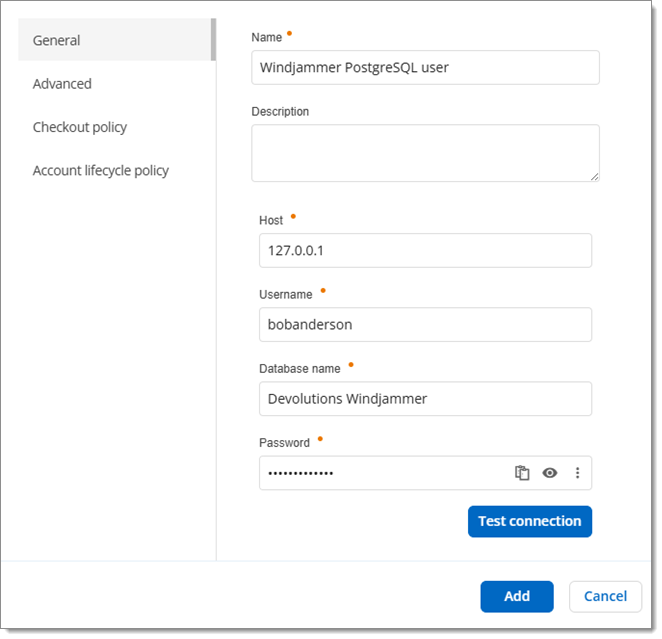The PostgreSQL user provider is designed to extend native PostgreSQL capabilities by enabling auditable password change operations.
As PostgreSQL does not offer built-in support for logging password modifications, this provider bridges that gap by generating detailed audit logs for such events. Its integration supports improved security oversight and helps organizations meet compliance requirements related to privileged account management.

| SETTINGS | DESCRIPTION |
|---|---|
| Name | Enter a name for the provider. |
| Description | Give additional context or notes about the provider. This is optional. |
| Host | Enter the IP address or hostname of the PostgreSQL database. |
| Username | Enter the PostgreSQL username. |
| Database name | Choose a name for the database. |
| Password | Enter the PostgreSQL user’s password. |
| SETTINGS | DESCRIPTION |
|---|---|
| Connection settings | Add additional PostgreSQL connection settings. |
SETTINGS | DESCRIPTION |
|---|---|
Checkout policy mode | Choose a checkout policy mode between:
|
Checkout mode | Choose whether checkouts are obligatory or not. This amounts to turning the checkouts on/off. |
Approval mode | Determine if checkouts require approval or not. |
Users can approve their own checkout | Determine if users can approve their own checkout request or whether they need the approval of an administrator. |
Checkout reason | Force users to add a reason in checkout requests. |
Checkout time (minutes) | Set the precise checkout time for all users, in minutes. |
Max checkout time (minutes) | Set the maximum checkout time, but leave it to the users to specify their needs for each request. |
| SETTINGS | DESCRIPTION |
|---|---|
| Password policy | Choose a password policy previously configured in Administration – Password policies. |
| Synchronization schedule | Set a date and time for automatic synchronization between the provider and its user/user groups. |